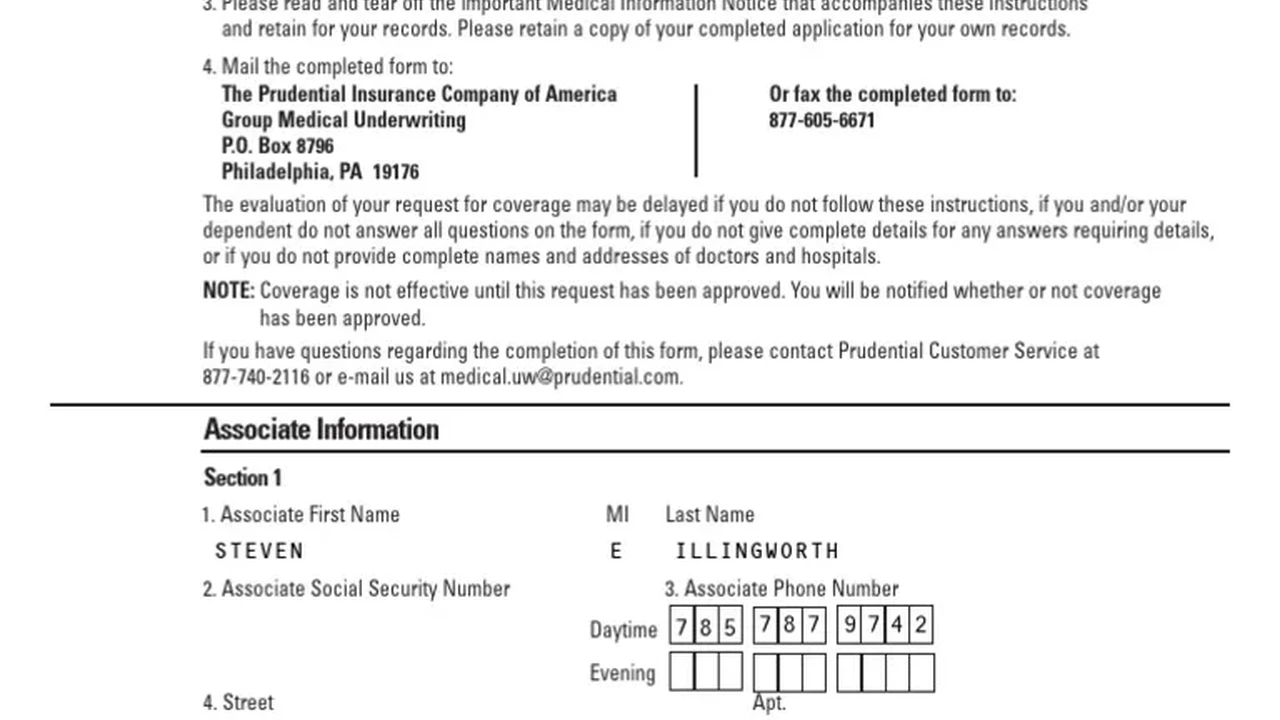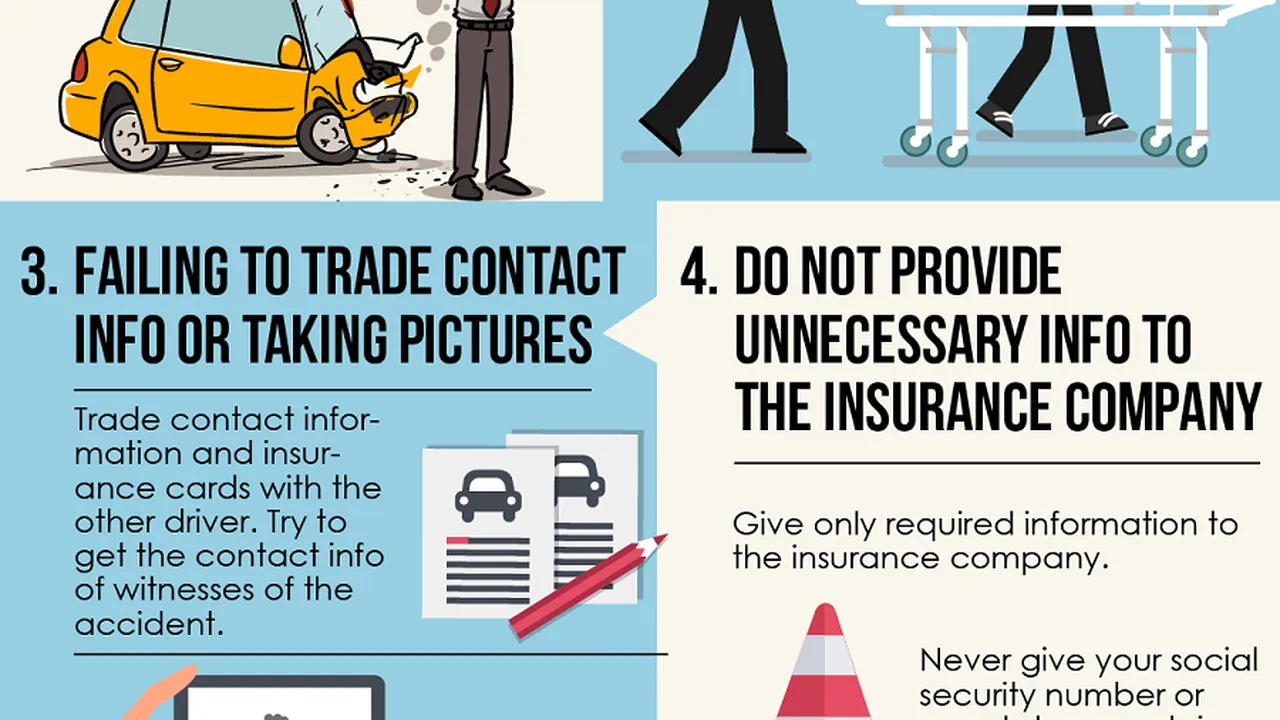How to Prepare for a Recorded Statement With the Insurance Company

Understanding the Recorded Statement and Your Rights
Okay, so you've been in a car accident, and now the insurance company wants to take a recorded statement. Don't panic! This isn't necessarily a bad thing, but it's crucial to be prepared. Think of it as a formal interview, and you want to ace it. The insurance company is trying to gather information to assess your claim, and your recorded statement is a key piece of that puzzle. Understanding your rights is the first step to success. You have the right to have an attorney present during the statement. You also have the right to decline to answer any questions that you feel uncomfortable with or that might incriminate you. Remember, the goal is to provide accurate information, not to incriminate yourself or inadvertently damage your claim.
Why Insurance Companies Request Recorded Statements
Why do they even bother with these recordings? Well, insurance companies use recorded statements to gather information about the accident, assess liability, and determine the extent of your damages. They want to hear your version of events firsthand. They're also looking for inconsistencies or potential red flags that might indicate fraud or exaggeration. Think of it as their due diligence. They need to investigate the claim thoroughly before they can make a fair settlement offer. They’re also trying to lock you into a specific version of events. This is why preparation is so crucial. You want to be consistent and accurate in your statements.
Preparing for Your Recorded Statement: A Step-by-Step Guide
Alright, let's get down to the nitty-gritty. How do you actually prepare for this recorded statement? Here's a step-by-step guide:
- Review the Accident Report: Before anything else, get a copy of the official police report. This will provide a factual account of the accident, including the date, time, location, and contributing factors. Make sure you understand what's in the report and that it aligns with your recollection of events.
- Gather Your Documentation: Collect all relevant documents related to the accident, such as medical records, repair estimates, photos of the damage, and any communications you've had with the insurance company. Having these documents readily available will help you answer questions accurately and confidently.
- Rehearse Your Story: Practice telling your story aloud. Focus on the key facts, such as how the accident happened, what you saw, and what you felt. Be clear, concise, and avoid speculation or exaggeration. Stick to the facts as you remember them.
- Anticipate Questions: Try to anticipate the questions the insurance adjuster might ask. They'll likely want to know about the circumstances leading up to the accident, your actions immediately after the accident, and the extent of your injuries and damages. Prepare answers to these questions in advance.
- Know Your Policy: Review your car insurance policy to understand your coverage limits and any exclusions that might apply. This will help you avoid making statements that could jeopardize your claim.
- Consult with an Attorney: If you're unsure about anything or feel uncomfortable talking to the insurance company on your own, consider consulting with an attorney. An attorney can advise you on your rights and help you prepare for the recorded statement.
Key Questions to Expect and How to Answer Them Honestly and Effectively
Okay, let's dive into some common questions you might face and how to answer them without shooting yourself in the foot:
- "Can you describe the accident in your own words?" Keep it simple. "I was driving north on Main Street when another car ran a red light and hit me." Avoid blaming, exaggerating, or adding emotional commentary.
- "What were you doing before the accident?" Be honest. "I was driving home from work." Avoid saying things like "I was rushing" or "I was distracted," even if it's true.
- "Did you see the other car before the impact?" Be accurate. "Yes, I saw the car approaching the intersection." Or, "No, I didn't see the car until it was too late." Don't guess.
- "Were you injured in the accident?" Be specific. "Yes, I suffered whiplash and a concussion." Provide details about your injuries and treatment.
- "Have you had any prior accidents or injuries?" Be truthful. Disclosing prior incidents upfront is better than having them discovered later.
The Importance of Honesty and Accuracy in Your Statement
Honesty is always the best policy, especially when dealing with insurance companies. Any inconsistencies or misrepresentations in your statement could be used to deny your claim. Be truthful and accurate in your answers, and avoid speculating or guessing. If you don't know the answer to a question, simply say so. It's better to admit that you don't know than to provide inaccurate information.
What to Avoid Saying During the Recorded Statement: Common Pitfalls
There are certain things you should avoid saying during the recorded statement that could potentially harm your claim. These include:
- Admitting Fault: Avoid admitting fault for the accident, even if you think you might have been partially responsible. Let the insurance company investigate and determine liability based on the facts.
- Guessing or Speculating: If you don't know the answer to a question, don't guess. It's better to say "I don't know" than to provide inaccurate information.
- Exaggerating Your Injuries or Damages: Be honest about the extent of your injuries and damages. Exaggerating your claim could be seen as fraud and could lead to your claim being denied.
- Downplaying Your Pain: Conversely, don't downplay your pain or injuries. If you're in pain, say so. If you're having difficulty performing certain tasks, mention it.
- Giving Vague or Ambiguous Answers: Be clear and concise in your answers. Avoid giving vague or ambiguous answers that could be misinterpreted.
The Role of an Attorney in Protecting Your Rights During the Recorded Statement Process
Having an attorney present during the recorded statement can be a huge advantage. An attorney can advise you on your rights, help you prepare for the statement, and ensure that the insurance company doesn't take advantage of you. An attorney can also object to improper questions and prevent you from making statements that could harm your claim. They can be a buffer between you and the insurance company, protecting your interests throughout the process. If you feel overwhelmed or unsure about anything, don't hesitate to seek legal counsel.
Tools and Resources for Preparing for a Recorded Statement
There are several tools and resources available to help you prepare for a recorded statement. These include:
- Online Articles and Guides: Numerous websites offer articles and guides on how to prepare for a recorded statement with an insurance company. These resources can provide valuable information and tips on how to answer questions effectively.
- Sample Questions and Answers: Some websites provide sample questions and answers that you can use to practice for your recorded statement. This can help you anticipate the questions you might be asked and prepare your responses in advance.
- Legal Consultation: Consulting with an attorney is a valuable resource for preparing for a recorded statement. An attorney can provide personalized advice and guidance based on your specific situation.
Product Recommendations for Documenting the Accident Scene
Documenting the accident scene is crucial for building a strong insurance claim. Here are a few products that can help you capture the necessary evidence:
- Dash Cam: A dash cam can record the events leading up to the accident, providing valuable evidence of who was at fault.
Product: Garmin Dash Cam 67W
Use Case: Records continuous footage of the road while you drive. If an accident occurs, the footage is automatically saved.
Comparison: The Garmin Dash Cam 67W offers a wider field of view compared to the Nextbase 522GW, capturing more of the surroundings. However, the Nextbase 522GW has built-in emergency SOS features that the Garmin lacks.
Price: Approximately $250.
- Smartphone with a Good Camera: Use your smartphone to take photos and videos of the damage to your vehicles, the accident scene, and any visible injuries.
Product: iPhone 14 Pro
Use Case: Capturing high-resolution photos and videos of the accident scene, vehicle damage, and injuries.
Comparison: The iPhone 14 Pro offers superior image quality and video stabilization compared to older models like the iPhone 11. The Google Pixel 7 Pro also has an excellent camera, but the iPhone is often preferred for its ease of use and video capabilities.
Price: Approximately $1000.
- Voice Recorder App: Use a voice recorder app on your smartphone to record your recollections of the accident immediately after it occurs. This can help you remember important details that you might otherwise forget.
Product: Otter.ai
Use Case: Recording your account of the accident immediately after it happens, while the details are still fresh in your mind. Otter.ai also transcribes the recording, which can be helpful for creating a written record.
Comparison: Otter.ai is more feature-rich than the built-in voice recorder apps on most smartphones. However, the built-in apps are free and easy to use for basic recording purposes.
Price: Free (basic version), $12.99/month (premium version).
Insurance Claim Settlement Negotiation Tactics After Giving a Recorded Statement
Okay, you've given your recorded statement. Now what? It's time to think about negotiation. The insurance company will use your statement (and all other evidence) to determine the value of your claim. Here are a few tips for negotiating a fair settlement:
- Know the Value of Your Claim: Before you start negotiating, research the value of your claim. Consider your medical expenses, lost wages, property damage, and pain and suffering.
- Make a Demand: Start by making a demand that is higher than what you're willing to accept. This gives you room to negotiate.
- Be Patient: Don't rush the negotiation process. It may take several rounds of offers and counteroffers before you reach a settlement.
- Document Everything: Keep a record of all communications with the insurance company, including phone calls, emails, and letters.
- Be Willing to Walk Away: If the insurance company isn't willing to offer a fair settlement, be prepared to walk away and pursue other options, such as filing a lawsuit.
Dealing with Denials and Lowball Offers After a Recorded Statement
Sometimes, despite your best efforts, the insurance company may deny your claim or offer a lowball settlement. Don't give up! You have options. First, find out why the claim was denied or why the offer is low. Get it in writing. Then, you can appeal the decision, provide additional evidence, or consult with an attorney to explore your legal options. A lawyer can assess the strength of your case and advise you on the best course of action.
Long-Term Strategies for Protecting Yourself After an Accident
Beyond the immediate aftermath of the accident, there are long-term strategies you can implement to protect yourself in the future. These include:
- Maintain Adequate Insurance Coverage: Make sure you have adequate car insurance coverage to protect yourself in the event of an accident. Consider increasing your liability limits and adding uninsured/underinsured motorist coverage.
- Drive Defensively: Practice defensive driving techniques to reduce your risk of being involved in an accident. Pay attention to your surroundings, anticipate potential hazards, and avoid distractions.
- Regularly Maintain Your Vehicle: Keep your vehicle in good working condition by performing regular maintenance, such as oil changes, tire rotations, and brake inspections.
- Stay Informed About Traffic Laws: Stay up-to-date on traffic laws and regulations in your area. This will help you avoid making mistakes that could lead to an accident.
Final Thoughts: Empowering Yourself Through Preparation
Preparing for a recorded statement with the insurance company can seem daunting, but it's an essential part of the claims process. By understanding your rights, gathering your documentation, and practicing your story, you can empower yourself to navigate the process with confidence. Remember to be honest, accurate, and avoid saying anything that could harm your claim. And if you're unsure about anything, don't hesitate to seek legal counsel. Good luck!
:max_bytes(150000):strip_icc()/277019-baked-pork-chops-with-cream-of-mushroom-soup-DDMFS-beauty-4x3-BG-7505-5762b731cf30447d9cbbbbbf387beafa.jpg)






